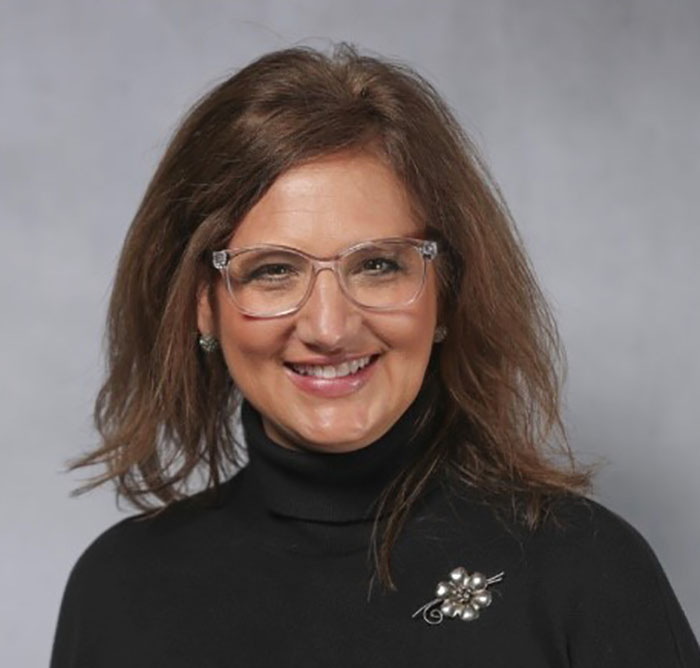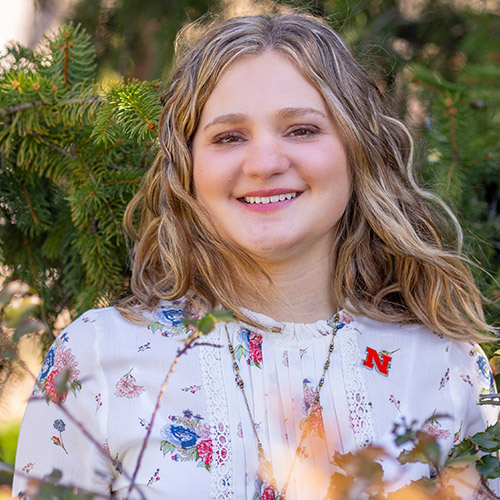
Nebraska Extension Nutrition and Health Programs
Directed Programming to Provide Access to Healthcare

Nebraska Extension nutrition and health programs help communities create environments that are supportive of health and well-being.
Jean Ann Fischer, Nebraska Extension Human Sciences Program Leader at the University of Nebraska–Lincoln, oversees Extension programming with Nebraska communities making it easier for individuals to make healthy choices.
“Our programming focuses on developing and implementing strategic plans that have a vision for health and well-being in Nebraska communities,” Fischer said. “We build capacity in Extension educators who work across the state, engaged in communities and focused on critical issues that best serve the area.”
Fischer also serves as the Director of the Nutrition Education Program that helps families facing poverty make healthy choices.
“In the nutrition education program, we are specifically focused on those individuals who are at 185% or less of the poverty level in Nebraska and implement multi-level approaches targeted at barriers keeping them from assessing health needs, whether it is food security or safe, physical activity spaces,” Fischer said.
People are influenced by interpersonal and environmental factors, so Fischer said she gears Extension programs toward helping people improve knowledge, skills, behavior, and attitudes toward health.
However, she also acknowledges environmental and societal influences impacting individuals as well. Such as social determinants of health (such as conditions in the places where people live, learn, work, and play that affect a wide range of health risks and outcomes) must be addressed to impact health outcomes.
Healthy Adults Shape Communities
Healthy individuals influence the workforce within the community.
“We know that healthier individuals are able to add more to a workforce,” Fischer said. “From a workforce standpoint, an individual’s health directly impacts organizations as there is a higher likelihood that increased burden of chronic disease will negatively impact healthy, productive workers.”
Physical and mental health are interrelated and are equally important components of overall health, Fisher said. Mental illness, especially depression, increases the risk for many types of physical health problems and the presence of chronic conditions can increase the risk for poor mental health.
Nebraska Extension Focus on Community Health
Behavioral health changes and health outcomes are shaped not only by individual decisions and choice, but also by environmental and community factors, Fischer said.
Goals of the Nebraska Extension programming that Fischer builds capacity for include increasing healthcare access, decreasing health disparities, and creating an environment that is supportive of people’s well-being, particularly in impoverished and rural communities throughout Nebraska.
“We shape interventions and strategies based on the community engagement and the community identified issues,” Fischer said.
Implementing new strategies to maintain healthy lifestyles can also begin at schools within the community as well. Fisher’s programs have participated in implementing programs in schools, such as starting a school garden, to increase children’s exposure to different types of foods.
“One positive benefit of a school garden is understanding the larger spectrum of where food comes from, while seeing the need for that entire food system to work together,” Fischer said.
Families Influence Health Choices
A person’s home life should provide them ways to live a healthy lifestyle, Fischer said.
Everyone has different definitions of family and various role models in their life. However, because of the strong influence role models provide, it is crucial those role models provide positive examples of a healthy lifestyle.
“A caregiver has a role in shaping behaviors and attitudes towards topics like body image and how children view different foods,” Fischer said.
Being a caregiver is an important role. When a caregiver, whether that is a parent, a childcare provider, or a teacher, makes healthy choices, it affects both the child and caregiver.
“From existing data collected from school enrichment programs throughout the years, we see positive change, not only in the youth knowledge and behavior, but also in teachers,” Fischer said. “Post survey data shows us that teachers are more aware of their role and how they might be influencing the children to change health behaviors in a positive way.”
Fischer’s work aligns with the World Health Organization’s sustainable development goals around health. Those goals include decreasing chronic diseases, improving food access, creating supportive environments of health and well-being in communities, and supporting positive behavior change for individuals.
For more information on Nebraska Extension’s health and nutrition programs visit https://food.unl.edu